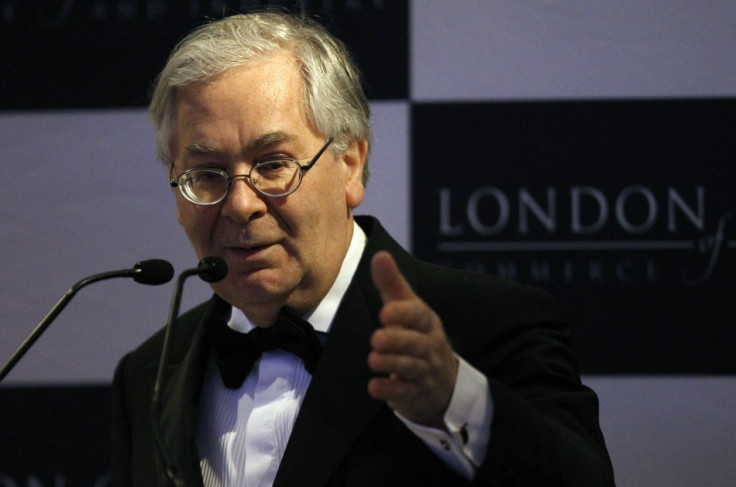Mervyn King: Lots of Platitudes, No Changes in Attitude

For a man claiming to care about public opinion, Mervyn King seems fairly eager to please.
Even after boasting that future Bank of England policy "won't make us popular among bankers, politicians and even at times some of you" he made sure not to ruffle too many feathers in his BBC Today Programme lecture.
Bankers? Well, they caused the financial crisis (check: angry taxpayers) but it's none of my business what they should be paid (check: former and future colleagues).
The Economy? We're doing better (check: David Cameron and George Osborne) but we're far worse off than we were before the crisis (check: Ed Miliband and Ed Balls).
Austerity? Perfectly sensible (check: Cameron an Osborne again) but don't go too far, too fast (check: Miliband and Balls)
The BoE's role in the crisis? We should have done more (check: angry taxpayers again) but we didn't have the authority (check: colleagues past, present and future).
Given his penchant for lecturing journalists like impertinent schoolchildren who've posed questions that displease him, it seems fitting to use report-card language to assess the first peacetime radio address from a Bank of England Governor since the Second World War:
Must do better.
Much, much better.
Britain is still staggering from the hangover of the global credit crisis - perhaps like no other advanced economy in the world. We've lost more than 7 percent of our output since 2008, countless millions of jobs and multiples more in private wealth. Banks were rescued, debt was piled onto debt and confidence - in government, the banks, the economy and the Old Grey Lady of Threadneedle Street itself - was shattered.
What was needed was a manful acknowledgement of the Bank's role in the crisis and a specific set of pledges and remedies to ensure Britons we won't see the pillar of the country's financial system fooled for a second time.
Instead, we heard a half-hearted mea culpa replete with caveats ("in hindsight, we should have done more") clichés ("we'll take away the punchbowl just as the next party is getting going") and misdirection ("as an independent bank with centuries of history"). It might be centuries old, but it's been independent for all of 15 years.
His past claims to have not foreseen the crisis seem sharply at odds with his assertion today that he didn't have the tools to deal with them. His previous boasts about delivering stability and growth as an independent central bank in the late 1990s and early 2000s ("it is not, I believe, credible to dismiss that solely as luck" he told the FT in 2007) seem quite different to his more recent claims of tool-lessness.
It's simply not good enough.
That's not to say there's not an argument to be made in the Bank's defence.
Its regulatory reach was clipped with its independence in 1997 (when that task was handed to the Financial Services Authority) and much of the global credit crisis was exactly that: global. Asset bubbles developed in the murky world of Special Investment Vehicles, Collateralised Debt Obligations and myriad other off balance-sheet wheezes that couldn't possibly be monitored by underpaid, understaffed Bank. (Mind you, at more than £300,000 a year, King himself is one of the most generously salaried central bank heads in the world).
And let's not forget, it takes two to tango: banks were over-leveraged and undercapitalized because too many of us borrowed more than we could reasonably expect to repay.
But you don't make that case by claiming, as King did, to have only had the power to "deliver sermons" when there's precious little record of you lobbying for more authority before the whole system nearly collapsed.
If the aim of last night's lecture was to avoid ruffling individual feathers, I'd give King and A.
Yet in his neutrality he still somehow managed to collectively enrage everyone while being singularly focused on protecting his own reputation.
For that, his speech deserves a fail.
© Copyright IBTimes 2025. All rights reserved.





















